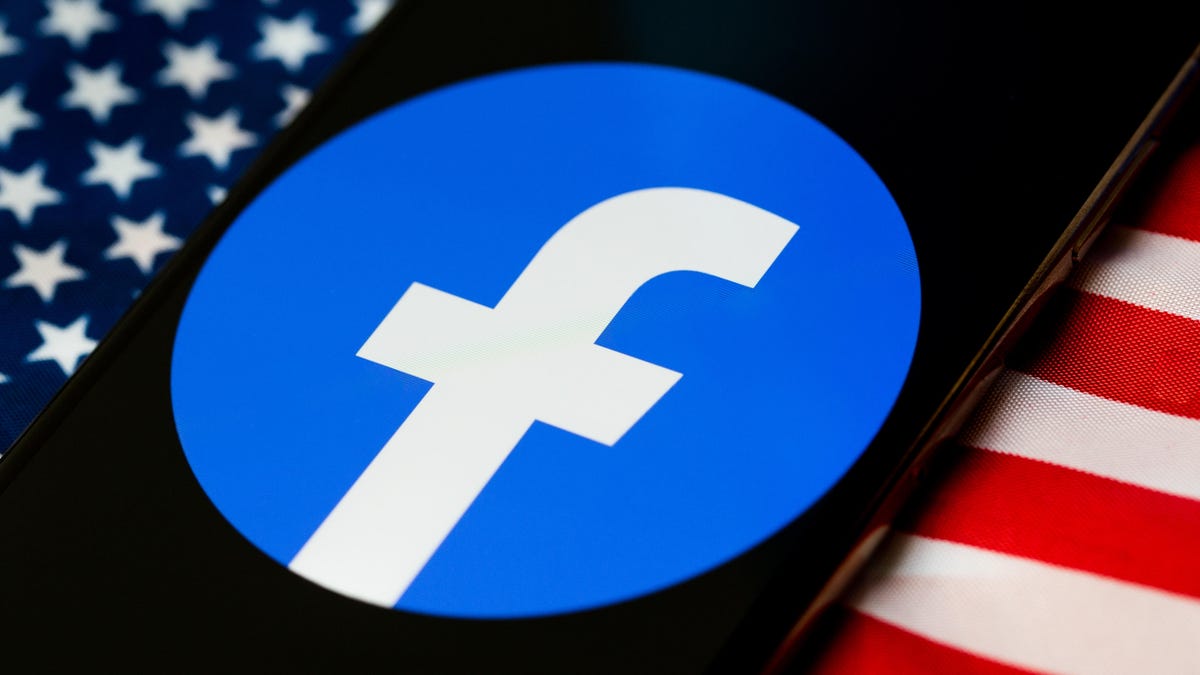Facebook doubles down on letting politicians lie in ads
The social network has faced fierce criticism over its political-ad policies.

Facebook again says it doesn't think decisions about political ads should be made by private companies.
Facebook unveiled on Thursday a handful of updates designed to give you more control over the political ads you see on the social network. But the company stood firm on a policy that lets politicians lie in those messages, sparking more controversy over Facebook's approach in the run-up to the 2020 US presidential election. In a blog post, the social network said it'll add a new control to give people the option to see fewer political and social issue ads on Facebook and Instagram, a photo sharing service it owns.
The feature will build on options already available in users' ad preferences settings, Facebook Director of Product Management Rob Leathern said in the post. Facebook said this option will show up in early summer in the US and will eventually expand to more locations.
The new tool, however, won't affect what some critics see as Facebook's most significant issue in dealing with political ads: its policy of allowing politicians to lie in their messages. Leathern defended Facebook's approach, saying private companies shouldn't be making decisions about political ads. Instead, he said, the industry needs regulation.
"In the absence of regulation, Facebook and other companies are left to design their own policies," Leathern said in the post. "We have based ours on the principle that people should be able to hear from those who wish to lead them, warts and all, and that what they say should be scrutinized and debated in public."
The introduction of the new Facebook tool and the refusal to change policy on political-ad content highlight the challenges the world's biggest social network faces as misinformation grows ahead of the 2020 US elections. Democrats and civil rights groups have criticized Facebook for allowing falsehoods, while conservative politicians and groups have charged that the social network and its rivals have censored their voices.
CEO Mark Zuckerberg and other Facebook executives have defended the company's decision, saying members of the public have the right to make up their own minds about what politicians say. "I don't think most people want to live in a world where you can only post things that tech companies judge to be 100% true," Zuckerberg said during a nearly 40-minute speech at Georgetown University in October.
On Thursday, former Vice President Joe Biden, a leading Democratic candidate for president, immediately lambasted Facebook on Twitter, the rival social network that's banned most political advertising to prevent the problem. Google has also curbed the precision of political-ad targeting and banned "demonstrably false claims."
"Facebook continues to put their profits over the truth -- allowing politicians like Donald Trump to spend an unthinkable amount of money on paid disinformation," Biden tweeted. "Our democracy is worse off for their failure to confront this."
Facebook continues to put their profits over the truth — allowing politicians like Donald Trump to spend an unthinkable amount of money on paid disinformation. Our democracy is worse off for their failure to confront this. https://t.co/sKaAjHsKc7
— Joe Biden (@JoeBiden) January 9, 2020
The White House didn't immediately respond to a request for comment. Trump campaign spokesman Tim Murtaugh told The New York Times that he supported the decision. "Our ads are always accurate so it's good that Facebook won't limit political messages because it encourages more Americans to be involved in the process," Murtaugh told the paper.
Sen. Elizabeth Warren, another Democratic hopeful, also blasted Facebook, in a tweet that appeared to reference a Teen Vogue article about the company's efforts to ensure election integrity. The article had caused confusion over whether it was sponsored content, and it later disappeared from the Teen Vogue site.
"Facebook is paying for its own glowing fake news coverage, so it's not surprising they're standing their ground on letting political figures lie to you," Warren tweeted. "Facebook needs real competition and accountability so our democracy isn't held hostage to their desire to make money."
Facebook is paying for its own glowing fake news coverage, so it's not surprising they're standing their ground on letting political figures lie to you. Facebook needs real competition and accountability so our democracy isn't held hostage to their desire to make money. https://t.co/bhy5bVGoAP
— Elizabeth Warren (@ewarren) January 9, 2020
Facebook also plans to make updates to its Ad Library, a public archive of ads that politicians and campaigns are running on Facebook and Instagram, and will roll out a control that lets people choose how advertisers reach them with a custom audience list. This could, for example, let people see political ads they'd otherwise be excluded from.
The company's hands-off approach to political advertising has already been tested. In October, Facebook told the Biden campaign it wouldn't remove an advertisement posted by the Trump campaign that said the former vice president had promised Ukraine $1 billion if the country sacked a prosecutor investigating a company affiliated with Biden's son. There's no evidence to support the claim, which fact-checking groups and media reports have debunked.
The Warren campaign also deliberately tested the company's tolerance for false statements in political advertising, posting an ad that said Zuckerberg and his company had endorsed Trump for reelection. Facebook let the ad stand.

